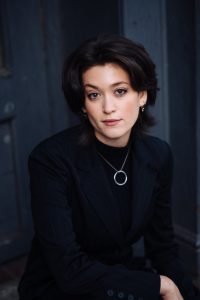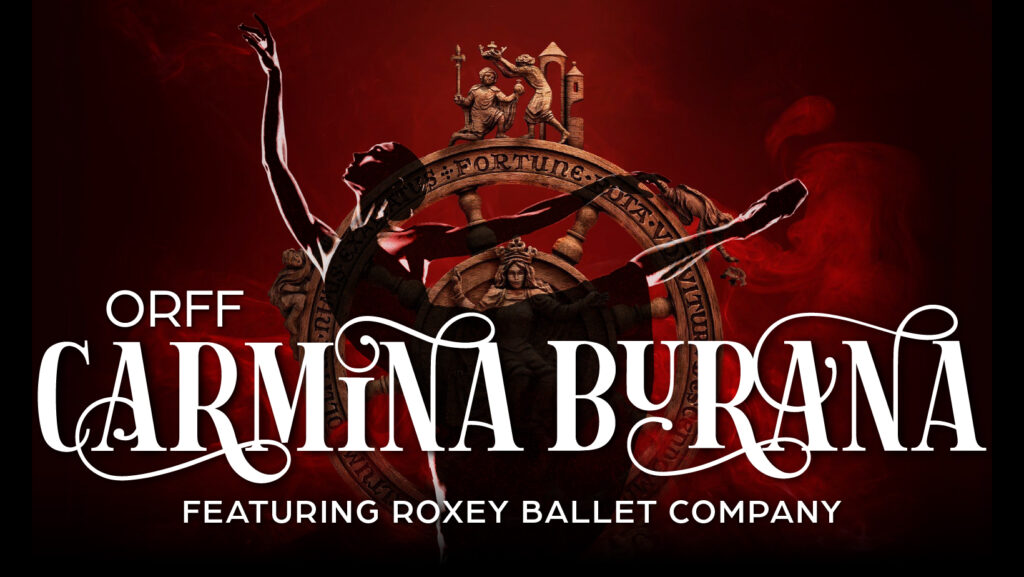Handel: Solomon
Handel: Solomon
Sarah Nelson Craft, mezzo-soprano, as Solomon
Sonya Headlam, soprano, Solomon's Queen
Elisse Albian, soprano, Queen of Sheba
Gregório Taniguchi, tenor
Harrison Hintzsche, baritone
November 5, 2023
4:00 p.m.
Pre-concert talk at 3:00 p.m.
Richardson Auditorium
Princeton University
Handel: Solomon
Sarah Nelson Craft, mezzo-soprano, as Solomon
Sonya Headlam, soprano, Solomon's Queen
Elisse Albian, soprano, Queen of Sheba
Gregório Taniguchi, tenor
Harrison Hintzsche, baritone
November 5, 2023
4:00 p.m.
Pre-concert talk at 3:00 p.m.
Richardson Auditorium
Princeton University
Click above to listen to the Director's Notes
Use Up/Down Arrow keys to increase or decrease volume.
In 1712, following four formative years in Italy, German-born organ virtuoso and budding composer George Frederic Handel landed in England, where he would spend the rest of his career. He gained renown writing for Queen Anne and George I grand ceremonial anthems and exuberant instrumental music. Following the success of his “Te Deum and Jubilate,” written for the Peace of Utrecht in 1713, Handel received an annual salary from the Crown. In 1727, the same year that Handel became a naturalized British citizen, George II chose the composer over his official Master of the King’s Music to write for his coronation. One of the anthems Handel wrote for that event, “Zadok the Priest,” was such a sensation that it has been used at every British coronation since. In the commercial sphere, Handel dominated the London musical scene for more than two decades with operas written in the Italian language and style. These dramatic works created and sustained the superstar status of virtuoso singers from Italy by showcasing their dazzling vocal prowess.
In the 1730s, the appetite of increasingly middle-class London audiences for Italian opera faded, and Handel shifted away from opera toward oratorios—musical dramas centered on biblical characters rather than Classical or mythological ones. Handel’s oratorios differed from his operas in other ways: They were sung in English rather than Italian, and they employed a chorus—a vehicle capable, in the hands of the well-trained singers of the Chapel Royal, St. Paul’s, and Westminster Abbey, of significant complexity and strength. Winton Dean, a twentieth-century Handel scholar, described the creations of Handel and his oratorio librettists as “blood and thunder Judaism.” These works are alive with triumph and tragedy, brimming with the virtuosic vocal fireworks in solo arias familiar to opera audiences, and adding grand ceremonial pomp in the choruses, and dazzling orchestral effects. In the summer of 1748, having already created oratorios about Deborah, Saul, Samson, Hercules, Judas Maccabeus, Belshazzar, and Joshua, Handel turned to Solomon.
Musically, Solomon is a tour-de-force for chorus, soloists, and orchestra. Like the stupendously varied fauna of planet earth, Handel’s compositions display endless variety yet are built of almost identical DNA. His nucleotides are simple melodies, regular harmonic progressions, and straightforward rhythmic motifs that in his expert hands are sequenced into striking musical phrases, powerfully cohesive movements, and colossal works. Until the advent of musical minimalism, no composer was able to build so much musical mass with so little material.
Beethoven himself suggested that composers “go and learn from him how to achieve vast effects with simple means.” Save for the crack and rumble of thunder, artillery, or galloping cavalry, the gathered forces performing Solomon might well have been the loudest thing ever heard by someone living in the eighteenth century.
Handel scored most of Solomon’s choruses for eight voice parts (as opposed to the standard four), sometimes lobbing loud proclamations back and forth between opposing four-voice choirs, other times hopscotching a catchy motif among eight independent parts. Throughout, the orchestra (large, by Handel’s standards) functions independently from the chorus. Several of the choruses are shameless pomp and praise. There, the singers function as a declamatory bloc, the orchestra framing it with muscular fanfare or adorning it with quicksilver sixteenth- note filigree. The other choruses exhibit extraordinary variety. Act I ends with an evocative chorus bidding good night to Solomon and his Queen as they take the nuptial bed, surrounded by the song of nightingales and kissed by sweet-scented breezes. In Act III, when Solomon demonstrates for the visiting Queen of Sheba the power of music to arouse different emotions, Handel uses the orchestra to evoke “clanking arms and neighing steeds” in the heat of battle, the sound of lapping waves, and the pain of “hopeless love” and “wild despair.”
In the solos, Handel shapes melody, harmony, rhythm, and instrumentation to sharpen character and heighten atmosphere. Solomon’s first vocal lines are enmeshed in slow-moving scales from a pair of bassoons and a pair of violas, their burnished timbres lending solemnity to the king’s prayer. Later in Act I, when Solomon urges his Queen to “Haste, haste to the cedar grove, where fragrant spices bloom and amorous turtles love,” the skittering violins suggest that he can hardly contain himself. The judgment scene of Act II contrasts the two women claiming to be the infant’s mother. One fulsomely avows that “Thy sentence, great king, [to divide the baby in half] is prudent and wise,” as propulsive rhythms in the cello and bass echo her pounding heart, and as her coloratura reveals her conniving delight that “at least [she] shall tear the infant from [his true mother].” The other woman, undone at the thought of her infant being sundered with a sword, gasps, “Can I see my infant gored . . . and behold the purple tides gushing down his tender sides?” in an aria tart with winey dissonance, punctuated by lump-in- the-throat rests. Should a listener wish to peruse a catalogue of the mature Handel’s musical modi operandi in 1748, Solomon will more than suffice.
As with all of Handel’s oratorios, Solomon is more than just music. It’s a story. Its libretto is a selective synopsis of the biblical accounts of Solomon from the Book of Kings and the Book of Chronicles, spun into rhyming verse. Act I establishes Solomon’s religious and marital piety. His first full aria expresses humility about his own wisdom in the face of God’s might and omniscience: Though he can “trace each herb and flower,” such displays of knowledge are “vain” in the face of Jehovah’s power. Solomon muses: “Say what’s the rest but empty boast, the pedant’s idle claim, who, having all the substance lost, attempts to grasp a name?” The very first thing we hear him sing is a prayer asking Jehovah to grace with his presence the temple Solomon has built. The second scene of Act I comprises a series of loving flatteries and flirtations between Solomon and his Queen.
In Act II, the librettist highlights the king’s great wisdom through the famous story of his judgment: Two women appear before him, both new mothers. One of their infants has died, and each claims the living child as her own. Solomon discerns the identity of the real mother by proclaiming that the baby should be cut in half with a sword. The lying mother approves the plan, but the real mother cannot bear to see her child harmed. The librettist transforms the twelve biblical verses into a richly textured scene that draws out both the false mother’s heartlessness and the true mother’s willingness to sacrifice on behalf of her child’s life, imbuing a straightforward story about Solomon’s wisdom with deep humanity. In closing, the chorus asks, “From the East unto the West, who so wise as Solomon?”
In Act III, the Queen of Sheba visits to verify claims about Solomon’s great wisdom and wealth and is overwhelmed by the splendor of his Temple and palace. Handel’s librettist embroiders the biblical narrative, having Solomon display his accomplishments with a lavish entertainment demonstrating the many powers of music. In appreciation, the queen leaves him with gifts of gold, gems, and timber. The two monarchs sing a duet in which they deem each other worthy of their subjects’ unreserved praise: “May thy people sound thy praise—praise unbought by price or fear.” After the adieu, the oratorio closes with a pithy maxim: “The name of the wicked shall quickly be past, but the name of the just shall eternally last.”
As a conductor, I’m awed by the grandeur and emotion of Handel’s music. As a music historian, I’m fascinated to contemplate how Handel’s audiences, accustomed to allegorical representations in the theater and aware of their own national political debates, might have heard and processed the story presented to them by Handel’s librettist. Scholar Ruth Smith’s summary of the three acts of Solomon helps reframe the story in those terms:
In broad outline, the first part of the libretto presents the king’s investment of funds in the promotion of national religion and major building programs (the temple and the palace) and his securing of the dynasty in a satisfactory marriage; the second establishes his claim to the throne and demonstrates his wisdom (the judgment of Solomon); and the third shows the king and nation, rich, cultivated, virtuous, powerful and at peace, receiving the admiring tribute of the foreign world (the visit of the Queen of Sheba).
Several debates animating the political sphere during this period might have colored audience interpretations of Solomon. One concerns the balance of power between the Crown and the Constitution, much at issue in the Glorious Revolution of 1688, and still on the minds of British subjects in the 1740s. The librettist adapts his source material to portray Solomon as decidedly anti-despotic and anti-absolutist. The librettist introduces the judgement scene with an imagined attendant, who asks Solomon if he can bring in the two disputing women. This elicits Solomon’s revealing response: “Admit them straight, for when we take the throne, our hours are all the people’s, not our own.” Yet the libretto preserves the biblical presentation of Solomon as both judge and jury, making no reference to any law of the land. Another debate concerns the relationship between Crown and Church: Though political acts in the seventeenth century had established Anglicanism as the state religion, during the decades when Handel was writing his oratorios, some Anglicans warned against encroaching Deism and freethinking and promoted mutually beneficial relations between Church and Crown, similar to the kind portrayed in Solomon.
More incongruous, perhaps, is the librettist’s transformation of Solomon’s political marriage to Pharaoh’s daughter into a celebration of marital piety, ignoring the biblical account of the king’s 700 wives and 300 concubines. It also omits the story of how some of them led him away from Jehovah to worship their own gods, even leading him to build places of worship for them. (In the Bible, this impious behavior ultimately leads to the dismantling of Solomon’s great kingdom and the destruction of his Temple.)
The libretto’s conspicuous omissions and extra-biblical embellishments portray Solomon in the best possible light. Did an audience member in 1748 relate Solomon to George II, either positively or negatively? We’ll never know. Then, as ever, good leadership lay in the eye of the beholder. Handel and his librettist knew how to craft an engaging entertainment that, if it harbored any political content or comment, kept it below the narrative’s surface. The success of their dramatic craft is that the story remains compelling in any era. Today, we are hearing a 3,000-year-old story adapted into 270-year-old verse and music. If you’re thinking (and who is not?) about our own national political turmoil, hearing Solomon might raise questions. What makes a great leader? What do we value in a head of state? Wisdom? Wealth? Piety? Humility? How do leaders expurgate or enhance the narratives they share with us?
Of course, it’s possible that Solomon’s libretto is nothing more than hagiography in the service of spectacular music, with an eye on box office receipts. Handel very rarely engaged in public political activity and focused his efforts on his (largely successful) business endeavors. The degree to which this oratorio succeeded in making a definitive statement about Hanoverian politics (or engaging us in our own) is ultimately overshadowed by the forceful statement it makes about the power of music. Nothing sparked Handel’s creative fires like the project of writing about music itself, and the sequence in Act III, like the oratorio as a whole, is musically as shimmering and splendid as Solomon’s Temple. The Temple’s magnificence remains legendary, but the structure itself was destroyed in 587 BCE. Precious few monuments have withstood the erosive and corrosive impacts of thousands of years of elapsed time. Some, like Versailles, have survived for centuries. Others, by contrast, are ephemeral: New York City’s own Beaux Arts urban temple, Penn Station, whose vast, vaulted interiors and expansive colonnades were guarded by stentorian stone eagles, was reduced to rubble and replaced with a dismal subterranean maze. Grandeur guarantees neither permanence nor preservation. Following its 1748 premiere and just two or three additional performances, Handel’s Solomon all but disappeared. Although it lay buried, unperformed, its blueprint—the score—remained. Music’s ephemerality is at once its limitation and its advantage. Of the countless magnificent musical works created before the invention of audio recording, all that remains is their silent blueprint. Unlike structures of stone and steel, which exist as physical realities but are subject to decay, musical works like Solomon are temples of sound whose splendor can be experienced only when revivified by communities of musicians and listeners. The celebration of music’s power in Act III extolls of the effects of live music—of sounds produced and heard in real time. By connecting us to each other in the present while engaging a musical past, such treasured artifacts prove to be the most durable and valuable of all.
Solomon, HWV 67
G. F. Handel (1685-1759)
ACT I
1. Overture
Scene I – The consecration of Solomon’s temple
Solomon’s priests sing praise to Jehovah, their god.
2. Chorus
3. Air – a Levite
4. Chorus
5. Accompagnato – Solomon
6. Recitative – Zadok
7. Air – Zadok
8. Chorus of Israelites
Solomon is humbly thankful for the gifts Jehovah has bestowed.
9. Recitative – Solomon
10. Air – Solomon
Scene II – Solomon and his Queen
Solomon promises to build a grand palace of Lebanese cedar and gold for his Queen, the daughter of Pharaoh.They take the nuptial bed amidst sweet fragrances and the song of nightingales.
11. Recitative – Solomon, Recitative – Solomon’s Queen
12. Duet – Solomon and his Queen
13. Recitative – Solomon
14. Air – Solomon
15. Recitative – Zadok
16. Chorus
• • •
We will pause briefly here while the orchestra tunes. Feel free to stand up and stretch (quietly, please).
• • •
ACT II
Scene I
The priests and the Israelites praise Solomon and wish him long life.
17. Chorus
Scene II – Solomon’s Great Wisdom
Two women come before Solomon, both claiming to be the mother of an infant boy. The First Woman claims that after the Second Woman’s baby died, she stole the First Woman’s son away and claimed him as her own.
18. Recitative – an Attendant and Solomon
19. Trio
20. Recitative – Solomon and Second Woman
21. Air – Second Woman
22. Recitative – First Woman
23. Air – First Woman
24. Accompagnato – Solomon
25. Duet – First Woman and Solomon
26. Chorus of Israelites
• • •
INTERMISSION
• • •
ACT III
Solomon welcomes the Queen of Sheba and shows her the Temple and his palace. She is enraptured. Solomon calls on his court to perform a musical masque, summoning his musicians to move the passions of the Queen in myriad ways: to lull her, to rouse martial spirit, to draw forth despair, and to calm.
27. Symphony: Arrival of the Queen of Sheba
28. Recitative – Queen of Sheba and Solomon
29. Air – Queen of Sheba
30. Recitative – Solomon
31. Solomon and Chorus
32. Solomon and Chorus
33. Recitative - Solomon
34. Chorus
35. Recitative – Solomon
36. Chorus
37. Recitative – Queen of Sheba
38. Air – Zadok the Priest
Solomon appreciates his bounty and savors the beauty of nature that surrounds him, and then he and the Queen bid each other farewell.
39. Recitative – Solomon
40. Air – Solomon
41. Recitative – Queen of Sheba and Solomon
42. Duet
43. Chorus
 Known for her vibrant and engaging storytelling and the “rich beauty of her voice,” mezzo-soprano Sarah Nelson Craft has been hailed by Opera News as “exquisite… glowing… and genuine.” As a song recitalist she has been presented by Carnegie Hall, Five Boroughs Music Festival, Brooklyn Art Song Society, and Music Academy of the West, collaborating with renowned pianists including Warren Jones and Martin Katz. Seen and Heard International noted that she “cast a spell over the audience” and is “one of those singers for whom words and tone combine to create a beautiful, bubbling musical flow of emotion.”
Known for her vibrant and engaging storytelling and the “rich beauty of her voice,” mezzo-soprano Sarah Nelson Craft has been hailed by Opera News as “exquisite… glowing… and genuine.” As a song recitalist she has been presented by Carnegie Hall, Five Boroughs Music Festival, Brooklyn Art Song Society, and Music Academy of the West, collaborating with renowned pianists including Warren Jones and Martin Katz. Seen and Heard International noted that she “cast a spell over the audience” and is “one of those singers for whom words and tone combine to create a beautiful, bubbling musical flow of emotion.”
She brought her passion for early music to the title role in Handel’s Solomon with Amor Artis and New York Baroque, Inc., as well as the role of Piramo in Hasse’s Piramo e Tisbe with The Little Opera Theatre of NY. Concert highlights include Bach’s Mass in B minor at Lincoln Center’s Avery Fisher Hall, Mozart’s Coronation Mass at Alice Tully Hall, Vivaldi’s Gloria at Carnegie Hall, Mahler’s Symphony No.2 with the New Jersey Festival Orchestra, Debussy's Trois ballades de François Villon with New York Repertory Orchestra, Canteloube’s Chants d’Auvergne with the Brooklyn Symphony Orchestra, and Brahms’ Alto Rhapsody with Princeton Pro Musica.
Favorite operatic roles include the title role in Rossini’s La Cenerentola and Massenet’s Cendrillon, as well as Cherubino, Hansel, Dido, and Hermia in Britten’s A Midsummer Night’s Dream. Ms. Craft has performed with companies including the Caramoor International Music Festival, New York City Opera, Death of Classical, ChamberQUEER, and the Macau International Music Festival.
Her 2023-2024 season includes a performance of Berlioz’s La mort de Cléopâtre with New York Repertory Orchestra, several concerts with Amor Artis Chamber Choir, and a return to Brooklyn Art Song Society's New Voices Festival where she will perform works by Caroline Shaw and premiere a new song cycle by Jessica Meyer. www.sarahnelsoncraft.com

Soprano Sonya Headlam performs music that spans centuries, from the Baroque era to the present. As a soloist, she has garnered acclaim on prestigious stages across the United States. Recent highlights include her debut with the Philadelphia Orchestra in Handel's Messiah, her Severance Hall debut with Apollo's Fire, and joining the North Carolina Symphony for Handel’s Messiah and Beethoven's Symphony no. 9. She has collaborated with other esteemed ensembles, such as the New World Symphony, the Milwaukee Symphony Orchestra, TENET Vocal Artists, and others. Upcoming highlights include her solo debuts with the Indianapolis Symphony Orchestra, the New York Philharmonic, and the National Arts Centre Orchestra in Ottawa, Canada.
In 2023, Sonya was appointed as the Rohde Family Artist-in-Residence at the Chelsea Music Festival, where she performed Sung Jin Hong’s Kennst du das Land in a world premiere string arrangement conducted by Ken-David Masur. In 2021, she performed the premiere of Patricio Molina's song Kecha Tregulfe at Carnegie Hall. Other contemporary pieces she has helped bring to life include Yaz Lancaster's song cycle ouroboros, produced by Beth Morrison Projects; Tyshawn Sorey’s Monochromatic Light (afterlight), directed by Peter Sellars; and Julia Wolfe's Steel Hammer, performed with the Bang on a Can All-Stars at Carnegie Hall.
Sonya also performs a wide range of art songs, from early to new music, popular standards, and lesser-known and hidden gems. Her Jamaican heritage has inspired her to perform the works of celebrated Jamaican composers like Peter Ashbourne and Andrew Marshall. She is featured on the Raritan Players recording In the Salon of Madame Brillon: Music and Friendship in Benjamin Franklin’s Paris, directed by historical keyboardist and musicologist Dr. Rebecca Cypess, and is working with them on the soon-to-be-released album featuring the music of Ignatius Sancho and new compositions by Trevor Weston. Equally comfortable on the opera stage, Sonya’s favorite role portrayals include le Feu in Ravel’s L'enfant et les sortilèges, Fiordiligi in Mozart’s Così fan tutte, and Musetta in Puccini’s La bohème.
From her critically acclaimed Jamaican debut in 2009 to her Doctor of Musical Arts from Rutgers University's Mason Gross School of the Arts, Sonya's musical journey has been characterized by dedication and a variety of accomplishments. Consistently praised by critics for her sincere artistry, Sonya believes in the transformative power of music and its capacity to resonate with our deepest emotions, offer insights into ourselves and others, and foster connections that profoundly enrich our lives.
 Hailed by South Florida Classical Review as a “opulent soprano" possessing “rich tones, expressive phrasing," and a "soaring top range,” Elisse Albian finds delight in presenting oratorios, opera, choral compositions, and all that resonates in between. An ardent advocate for the collaborative essence of musical creation, Elisse places immense value on versatility and the inherent instrumental qualities of the human voice.
Hailed by South Florida Classical Review as a “opulent soprano" possessing “rich tones, expressive phrasing," and a "soaring top range,” Elisse Albian finds delight in presenting oratorios, opera, choral compositions, and all that resonates in between. An ardent advocate for the collaborative essence of musical creation, Elisse places immense value on versatility and the inherent instrumental qualities of the human voice.
A crowning achievement in Elisse's journey was securing first place at the Lyndon Woodside Oratorio-Solo Competition hosted by the Oratorio Society of New York at Carnegie Hall. Their artistic collaborations extend to prestigious groups like the GRAMMY®-nominated Seraphic Fire, Voices of Ascension, The Choir of Trinity Wall Street, Musica Sacra, and The Benedict XVI Choir. The 2022-2023 season showcased Elisse as the soprano soloist in performances of Bach's St. John Passion, BWV 245 alongside Voices of Ascension, Bach's Christmas Oratorio, BWV 248, and Handel's Messiah with Seraphic Fire. Additionally, Elisse was a soloists for Mozart's Coronation Mass, K. 317, and Vesperes Solennes di Confessore, K. 339, with Kollective366.
Their season also included Telemann's cantatas from the Harmonischer Gottesdienst in collaboration with Theotokos ensemble, presented through Gotham Early Music Scene's Midtown Concert series.
In the upcoming season, Elisse eagerly anticipates performing as the first soprano soloist for Handel's Dixit Dominus with Musica Sacra. They will also perform Benjamin Britten’s thrilling song cycle, Les Illuminations.
Elisse completed a Bachelor’s of Music at the University of California, Los Angeles and recently graduated with a Master of Music in Voice at Mannes (The New School).
 Gregório Taniguchi, tenor, crafts compelling performances that draw listeners to hear illuminated historical works and classics for a modern audience. Contemporary vocal music and new works by emerging composers likewise come alive through his communicative artistry.
Gregório Taniguchi, tenor, crafts compelling performances that draw listeners to hear illuminated historical works and classics for a modern audience. Contemporary vocal music and new works by emerging composers likewise come alive through his communicative artistry.
Gregório has empowered narratives with an intuitive sense for storytelling as the Evangelist in Bach’s St. John Passion and Christmas Oratorio, Æneas in Cavalli’s La Didone, Miles Zegner in Missy Mazzoli's Proving Up, and Septimius in Handel's Theodora. He has toured Ecuador with the emerging ensemble Las Aves and presented historically-informed 17th-century Italian and Spanish sacred repertoire in the cathedrals of Quito during Holy Week. He advocates for the intimate connections created by chamber music and regularly presents recitals of classic and contemporary art song. He has worked closely with pioneers of the early music movement as well as the next generation of scholar-interpreters, such as Peter Sellars, John Butt, Maria Guinand, Dana Marsh, Jane Glover, and Matthew Halls. Gregório enjoys the alchemy of collaborative ensemble singing, especially with Santa Fe Desert Chorale, Clarion Vocal Ensemble, Seraphic Fire, Cantus, Washington Bach Consort, Oregon Bach Festival, and Staunton Music Festival.
Gregório is passionate about being an active part of the community of artists, supporting composers in recording new works as a studio singer and faith communities as a choral scholar. He also serves as a language coach, especially in his native Portuguese. Additionally, he prioritizes being part of his ecological community, germinating seeds and raising native wildflower seedlings of the places he calls home.
 “Sonorous” (Opera News) and “Suave” (parterre box) baritone Harrison Hintzsche is a recitalist, concert singer, and ensemble musician. He has been praised for his warm lyric tone, musical subtlety, and dedication to text. His interpretation of Schubert at London’s Wigmore Hall with pianist Graham Johnson was noted by Opera Today for a “strong sense of narrative” and “gentle poignancy.” Hintzsche won first prize at the 2021 Colorado Bach Ensemble Young Artist Competition and the 2018 Edvard Grieg Society of Minnesota Voice Competition, and was the 2020 recipient of the Yale Institute of Sacred Music’s Margot Fassler Prize in the Performance of Sacred Music.
“Sonorous” (Opera News) and “Suave” (parterre box) baritone Harrison Hintzsche is a recitalist, concert singer, and ensemble musician. He has been praised for his warm lyric tone, musical subtlety, and dedication to text. His interpretation of Schubert at London’s Wigmore Hall with pianist Graham Johnson was noted by Opera Today for a “strong sense of narrative” and “gentle poignancy.” Hintzsche won first prize at the 2021 Colorado Bach Ensemble Young Artist Competition and the 2018 Edvard Grieg Society of Minnesota Voice Competition, and was the 2020 recipient of the Yale Institute of Sacred Music’s Margot Fassler Prize in the Performance of Sacred Music.
Recent performance highlights include performances of Bach’s Magnificat with Jos van Veldhoven and the Oregon Bach Festival, Bach’s St. Matthew Passion with the Colorado Bach Ensemble (bass arias), Handel’s Messiah with the Bach Choir of Bethlehem, a semi-staged version of John Blow’s opera Venus & Adonis (“Adonis”) with Early Music Access Project, a tour of South Korea with the American Soloists Ensemble and conductor Euijoong Yoon, and Finzi’s In Terra Pax and Vaughn Williams’s Fantasia on Christmas Carols with the Choral Society of the Hamptons. His discography credits include songs by Luise Greger on New Muses Project’s inaugural self-titled album, released in 2022, as well as the bass arias and role of Pilate on Cantata Collective’s live performance recording of Bach’s St. John Passion, led by Nicholas McGegan and released by AVIE Records in June 2023.
Hintzsche sings regularly with the nation’s leading choral ensembles, including the Santa Fe Desert Chorale, the Oregon Bach Festival Chorus, Yale Choral Artists, True Concord Voices & Orchestra, and Ensemble Altera, among others. Hintzsche holds degrees in music from Yale University and St. Olaf College. He currently resides in New York City, and is a native of DeKalb, Illinois. harrisonhintzsche.com
SOLOMON – AN ORATORIO IN THREE ACTS
ACT I
1. Overture
Scene 1 – The consecration of Solomon’s temple
Solomon’s priests sing praise to Jehovah, their god.
2. Chorus
Your harps and cymbals sound
To great Jehovah‘s praise;
Unto the Lord of hosts
Your willing voices raise.
3. Aria – a Levite
Praise ye the lord for all his mercies past,
Whose truth, whose justice will forever last.
4. Chorus
With pious heart, and holy tongue,
Resound your Maker‘s name,
Till distant nations catch the song,
And glow with holy flame.
Solomon, his Temple complete, prays for God’s presence. Flames descend upon the altar
where he has made his sacrifices. Zadok, a priest, sings of his sacred rapture,
and the Israelites praise Jehovah.
5. Accompagnato – Solomon
Almighty pow’r, who rul’st the earth and skies,
And bade gay order from confusion rise;
Whose gracious hand reliev’d Thy slave distress’d,
With splendour cloath’d me, and with knowledge bless’d;
Thy finish’d temple with Thy presence grace,
And shed Thy heav’nly glories o’er the place.
6. Recitative – Zadok
Imperial Solomon, thy pray’rs are heard.
See, from the op’ning skies
Descending flames involve the sacrifice;
And lo! within the sacred dome
That gleamy light, profusely bright,
Declares the Lord of hosts is come.
7. Aria – Zadok
Sacred raptures cheer my breast,
Rushing tides of hallow’d zeal,
Joys too fierce to be express’d,
In this swelling heart I feel.
8. Chorus of Israelites
Throughout the land Jehovah’s praise record,
For full of pow’r and mercy is the Lord.
Solomon is humbly thankful for the gifts Jehovah has bestowed.
9. Recitative – Solomon
Bless’d be the Lord, who look’d with gracious eyes
Upon His vassals’ humble sacrifice
And has with an approving smile
My work o’erpaid, and grac’d the pile.
10. Aria – Solomon
What though I trace each herb and flow’r,
That drink the morning dew,
Did I not own Jehovah’s pow’r,
How vain were all I knew.
Say what’s the rest but empty boast,
The pedant’s idle claim,
Who having all the substance lost
Attempts to grasp a name.
Scene II – Solomon and his Queen
Solomon promises to build a grand palace of Lebanese cedar and gold for his Queen,
the daughter of Pharaoh. They take the nuptial bed amidst sweet fragrances and the song of nightingales.
11. Recitative – Solomon
And see my queen, my wedded love,
You soon my tenderness shall prove;
A palace shall erect its head,
Of cedar built, with gold bespread;
Methinks the work is now begun,
The axe resounds on Lebanon,
And see, bedeck’d with canvas wings,
he dancing vessel lightly springs,
While Ophir’s mines, well pleas’d, disclose
The wealth that in their entrails glows.
Recitative – Solomon’s Queen
O monarch, with each virtue bless’d,
The brightest star that gilds the east:
No joy I know beneath the sun,
But what’s compris’d in Solomon.
12. Duet – Solomon and his Queen
Queen:
Welcome as the dawn of day
To the pilgrim on his way,
Whom the darkness caus’d to stray,
Is my lovely king to me.
Solomon:
Myrtle grove, or rosy shade,
Breathing odours through the glade
To refresh the village maid,
Yields in sweets, my queen, to thee.
13. Recitative – Solomon
My blooming fair, come, come away,
My love admits of no delay.
14. Aria – Solomon
Haste, haste to the cedar grove,
Where fragrant spices bloom,
And am’rous turtles love,
Beneath the pleasing gloom.
15. Recitative – Zadok
Search round the world,
there never yet was seen,
so wise a monarch,
or so chaste a queen.
16. Chorus
May no rash intruder disturb their soft hours;
To form fragrant pillows, arise, oh ye flow’rs!
Ye zephirs, soft-breathing, their slumbers prolong,
While nightingales lull them to sleep with their song.
• • •
We will pause briefly here while the orchestra tunes.
Feel free to stand up and stretch (quietly, please).
• • •
ACT II
Scene I
The priests and the Israelites praise Solomon and wish him long life.
17. Chorus
From the censer curling rise
Grateful incense to the skies;
Heaven blesses David’s throne,
Happy, happy Solomon!
Live, live for ever, pious David’s son;
Live, live for ever, mighty Solomon.
Scene II – Solomon’s Great Wisdom
Two women come before Solomon, both claiming to be the mother of an infant boy.
The First Woman claims that after the Second Woman’s baby died, she stole the First Woman’s
son away and claimed him as her own.
18. Recitative – an Attendant and Solomon
Attendant:
My sovereign liege, two women stand,
And both beseech the king’s command
To enter here. Dissolv’d in tears
The one a new-born infant bears;
The other, fierce, and threat’ning loud,
Declares her story to the crowd;
And thus she clamours to the throng,
“Seek we the king, he shall redress our wrong.”
Solomon:
Admit them straight; for when we mount the throne,
Our hours are all the people’s, not our own.
First Woman:
Thou son of David, hear a mother’s grief;
And let the voice of justice bring relief.
This little babe my womb conceiv’d,
The smiling infant I with joy receiv’d.
That woman also bore a son,
Whose vital thread was quickly spun:
One house we together kept;
But once, unhappy, as I slept,
She stole at midnight where I lay,
Bore my soft darling from my arms away,
And left her child behind, a lump of lifeless clay:
And now — oh impious! — dares to claim
My right alone, a mother’s name.
19. Trio
First Woman:
Words are weak to paint my fears;
Heart-felt anguish, starting tears,
Best shall plead a mother’s cause.
To thy throne, O king, I bend,
My cause is just, be thou my friend.
Second Woman:
False is all her melting tale.
Solomon:
Justice holds the lifted scale.
Second Woman:
Then be just, and fear the laws.
20. Recitative – Solomon and Second Woman
Solomon:
What says the other to th’imputed charge?
Speak in thy turn, and tell thy wrongs at large.
Second Woman:
I cannot varnish o’er my tongue.
And colour fair the face of wrong.
This babe is mine, the womb of earth
Intomb’d, conceals her little birth.
Give me my child, my smiling boy,
To cheer my breast with new-born joy.
Solomon declares that he will divide the infant and give each woman half. He asks for a faulchion (a sword) to be brought. The Second Woman deems this solution “prudent and wise” and is content that at least the First Woman will not get the baby. The First Woman begs Solomon not to harm the child, asking that he be spared even if she must give him up.
Solomon:
Hear me, women, and the king regard,
Who from his throne thus reads the just award:
Each claims alike, let both their portions share;
Divide the babe, thus each her part shall bear.
Quick, bring the faulchion, and the infant smite,
Nor further clamour for disputed right.
21. Aria – Second Woman
Thy sentence, great king,
Is prudent and wise,
And my hopes on the wing quick bound for the prize.
Contented I hear, and approve the decree;
For at least I shall tear the lov’d infant from thee.
22. Recitative – First Woman
Withhold, withhold the executing hand!
Reverse, O king, thy stern command.
23. Aria – First Woman
Can I see my infant gor’d
With the fierce relentless sword?
Can I see him yield his breath,
Smiling at the hand of death?
And behold the purple tides
Gushing down his tender sides?
Rather be my hopes beguil’d,
Take him all, but spare my child.
Solomon explains that never intended to harm the infant, but only to identify the true mother.
24. Accompagnato – Solomon
Israel, attend to what your king shall say:
Think not I meant the innocent to slay.
The stern decision was to trace with art,
The secret dictates of the human heart.
She who could bear the fierce decree to hear,
Nor send one sigh, nor shed one pious tear,
Must be a stranger to a mother’s name —
Hence from my sight, nor urge a further claim!
But you, whose fears a parent’s love attest,
Receive, and bind him to your beating breast:
To you, in justice, I the babe restore,
And may you lose him from your arms no more.
The First Woman expresses her gratitude to Solomon, who, in turn, thanks and praises God. The Israelites extol Solomon’s wisdom.
25. Duet – First Woman and Solomon
First Woman:
Thrice bless’d the king, for he’s good and he’s wise.
My gratitude calls streaming tears from my eyes.
Solomon:
The Lord all these virtues has giv’n, Thy thanks be return’d all to Heav’n.
‘Tis God that rewards, and will lift from the dust
Whom to crush proud oppressors endeavour
First Woman:
How happy are those who in God put their trust!
Solomon:
For His mercy endureth for ever.
26. Chorus of Israelites
From the east unto the west,
Who so wise as Solomon?
Who like Israel’s king is bless’d,
Who so worthy of a throne?
Swell, swell the full chorus to Solomon’s praise,
Record him, ye bards, as the pride of our days.
Flow sweetly the numbers that dwell on his name,
And rouse the whole nation in songs to his fame.
INTERMISSION
ACT III
Solomon welcomes the Queen of Sheba and shows her the Temple and his palace.
She is enraptured. Solomon calls on his court to perform a musical masque,
summoning his musicians to move the passions of the Queen in myriad ways:
to lull her, to rouse martial spirit, to draw forth despair, and to calm.
27. Symphony: Arrival of the Queen of Sheba
28. Recitative – Queen of Sheba and Solomon
Queen of Sheba:
From Arabia’s spicy shores,
Bounded by the hoary main,
Sheba’s queen these seats explores,
To be taught thy heav’nly strain.
Solomon:
Thrice welcome queen, with open arms
Our court receives thee, and thy charms.
The temple of the Lord first meets your eyes,
Rich with the well-accepted sacrifice.
Here all our treasures free behold,
Where cedars lie, o’erwrought with gold;
Next, view a mansion fit for kings to own,
The forest call’d of tow’ring Lebanon,
Where art her utmost skill displays,
And ev’ry object claims your praise.
29. Aria – Queen of Sheba
Ev’ry sight these eyes behold
Does a different charm unfold;
Flashing gems and sculptur’d gold,
Still attract my ravish’d sight
But to hear fair truth distilling,
In expressions choice and thrilling,
From that tongue so soft and killing,
That my soul does most delight.
30. Recitative – Solomon
Sweep, sweep the string, to soothe the royal fair,
And rouse each passion with th’alternate air.
31. Solomon and Chorus
Music, spread thy voice around,
Sweetly flow the lulling sound.
32. Solomon and Chorus
Now a diff’rent measure try,
Shake the dome, and pierce the sky.
Rouse us next to martial deeds;
Clanking arms, and neighing steeds,
Seem in fury to oppose —
Now the hard-fought battle glows.
33. Recitative - Solomon
Then at once from rage remove;
Draw the tear from hopeless love;
34. Chorus
Draw the tear from hopeless love;
Lengthen out the solemn air,
Full of death and wild despair.
35. Recitative – Solomon
Next the tortur’d soul release,
And the mind restore to peace.
36. Chorus
Thus rolling surges rise,
And plough the troubled main;
But soon the tempest dies,
And all is calm again.
The Queen offers a bounty of gifts—gold, gems, spices, and timber— and again praises the Temple. Zadok the Priest describes its inner sanctuary, whose walls and floor are overlaid completely with gold. Two massive carved cherubim spread their wings across the space.
37. Recitative – Queen of Sheba
Thy harmony’s divine, great king,
All, all obey the artist’s string.
And now, illustrious prince, receive
Such tribute as my realm can give.
Here, purest gold, from earth’s dark entrails torn;
And gems resplendent, that outshine the morn;
There balsam breathes a grateful smell,
With thee the fragrant strangers wish to dwell.
Yet of ev’ry object I behold,
Amid the glare of gems and gold,
The Temple most attracts my eye,
Where, with unwearied zeal, you serve the Lord on high.
38. Aria – Zadok the Priest
Golden columns, fair and bright,
Catch the mortals’ ravish’d sight;
Round their sides ambitious twine
Tendrils of the clasping vine;
Cherubims stand there display’d,
O’er the ark their wings are laid:
Ev’ry object swells with state,
All is pious, all is great.
Solomon appreciates his bounty and savors the beauty of nature that surrounds him, and then he and the Queen bid each other farewell.
39. Recitative – Solomon
Gold now is common on our happy shore,
And cedars frequent are as sycamore.
All, all conspires to bless my days;
Fair plenty does her treasures raise,
And o’er the fruitful plains her countless gifts displays.
40. Aria – Solomon
How green our fertile pastures look!
How fair our olive groves!
How limpid is the gliding brook,
That through the meadows roves.
A hundred diff’rent balmy flow’rs
Salute the passing gale,
When ev’ning breezes fan the bow’rs,
And sweep th’enamell’d vale.
41. Recitative – Queen of Sheba and Solomon
Queen of Sheba:
May peace in Salem ever dwell!
Illustrious Solomon, farewell!
Solomon:
Adieu, fair queen, and in thy breast
May peace and virtue ever rest!
42. Duet
Queen of Sheba:
Ev’ry joy that wisdom knows,
May’st thou, pious monarch, share!
Solomon:
Ev’ry blessing Heav’n bestows,
Be thy portion, virtuous fair!
Queen of Sheba:
Gently flow thy rolling days.
Solomon:
Sorrow be a stranger here.
Both:
May thy people sound thy praise,
Praise unbought by price of fear.
43. Chorus
The name of the wicked shall quickly be past;
But the fame of the just shall eternally last.
| SOPRANO Blessing Agunwamba Marie Altobelli Rose Ananthanayagam Gail Balog Fumiko Bauer Kalyani Bhatt Stephanie Brown Dorothy Cassimatis Sally Chrisman Marisa Curcio Sidnee Curtis Harikanta Didi-Ogren Sandra Black Duffy Angel Gardner Candus Hedberg Eleanor Hubbard Jan Johnson Judith Johnston Carol Johnston Kimberlynn Kleasen Jane Kleindienst Kathy Korwin Maureen Kyle Teri Lindstrom Carol K. McCollough Juliane Michelis Marjorie Morse Bela Nakum Rebekah Nawalinski Sandra Noyelle Bridget Reddington Kathleen Spoto Jody Stebbins Marilee Thompson Sophie Travis Emily Van Buskirk Norah Wasden TENOR |
ALTO LaVerna Albury Erica Townsend Appel Sue Begent Brenda Berger Janet Breslin Elaine R. Clisham Libby Crowley Lisa Dacuk-Julius Lori Del Negro Hazel Eaton Linda Gardner Ellen Harrison Joyce Irwin Malgorzata Jagiello Melissa Kettner Olga Kronenberg Carolyn P. Landis Nina Lucas Sara Maldonado Susan Metz Dianne D. Miles Fernanda Muccilli Kim Elaine Neighbor Mineko Ogata Jean Parsons Janet Perkins Fran Perlman Ellen Petrone Rebecca Phillips Jan Ritter Susan Sumutka Marie-Diane Tenney BASS |

Hailed as “truly excellent” and “studded with stars in the making” (New York Times), New York Baroque Incorporated (NYBI) is a conductorless orchestra of period instruments in New York City, bringing vital, informed, and fresh performances of a wide range of 17th and 18th-century repertoire, as well as creating a vibrant landscape for collaborations between historical performance and living composers. NYBI has collaborated with renowned soloists including Richard Egarr, Vivica Genaux, Monica Huggett, and has performed at Carnegie Hall, the Metropolitan Museum of Art, and Spoleto Festival USA. Striving to make period instruments a living art form, NYBI has premiered works by Nico Muhly, Hollis Taylor, and Huang Ruo. The orchestra also dedicates itself to bring to life unknown works of the Baroque, and has revived and presented modern-day premieres of Cavalli’s Veremonda (1652), Aliotti’s Santa Rosalia (1687) and Seckendorff’s Proserpina (1777).
NYBI’s 2023-24 season features a festival devoted to music inspired by the four wind gods in Greek mythology, a world-premiere multi-disciplinary mashup with dancers and a DJ alongside NYBI’s live performance of George Frideric Handel’s Dixit Dominus, and this evening’s choral collaborations with Princeton Pro Musica. For information and upcoming events visit www.NYBaroque.org.
New York Baroque Incorporated
Wen Yang, Artistic Director
| Violin Aisslinn Nosky, concertmaster Kako Miura Francis Liu Lydia BeckerViolin II Karen Dekker Amelia Sie Sarah Jane Kenner Will Copeland Viola Cello
|
Oboe Andrew Blanke Sarah Weiner Bassoon Trumpet Bass Keyboard Timpani |
 Dennis Olson is the Charles Haley Professor of Old Testament Theology at Princeton Theological Seminary in Princeton, New Jersey. His academic focus is on literary analysis of Old Testament narrative and theology with particular emphasis on the Pentateuch (Genesis-Deuteronomy) along with the interplay of biblical theology and the practice of ministry and leadership. An ordained minister in the Evangelical Lutheran Church in America, he served as a parish pastor for four years before coming to Princeton Seminary where he has taught for the past 36 years. He is the author of several books, including theological commentaries on the Old Testament book of Numbers (Interpretation series), the book of Deuteronomy (with the title Deuteronomy and the Death of Moses, A Theological Reading), and the book of Judges in The New Interpreter’s Bible, Volume 2. He is currently working on a commentary on the book of Exodus.
Dennis Olson is the Charles Haley Professor of Old Testament Theology at Princeton Theological Seminary in Princeton, New Jersey. His academic focus is on literary analysis of Old Testament narrative and theology with particular emphasis on the Pentateuch (Genesis-Deuteronomy) along with the interplay of biblical theology and the practice of ministry and leadership. An ordained minister in the Evangelical Lutheran Church in America, he served as a parish pastor for four years before coming to Princeton Seminary where he has taught for the past 36 years. He is the author of several books, including theological commentaries on the Old Testament book of Numbers (Interpretation series), the book of Deuteronomy (with the title Deuteronomy and the Death of Moses, A Theological Reading), and the book of Judges in The New Interpreter’s Bible, Volume 2. He is currently working on a commentary on the book of Exodus.
He is married to his wife, Carol, who works as the coordinator of educational technology at the Lower School of Princeton Day School.
ACKNOWLEDGEMENTS
Princeton Pro Musica wishes to thank the following individuals and organizations for providing their special help:
Discover Jersey Arts
New Jersey State Council on the Arts
Princeton Area Community Foundation
Princeton Mercer Chamber of Commerce
Regina Opera Company for their Supertitles template
Allegra ⧫ Marketing ⧫ Print ⧫ Mail ⧫ Design
Timothy Carpenter - Supertitles Operator
Baroque Keyboards
VOLUNTEER COORDINATOR
Janet Breslin
BOOKKEEPER
Maureen Kyle
CONCERT HOUSE STAFF
Kevin Dzuiba
CONCERT MANAGER
Dianne D. Miles
DIGITAL PROGRAM
Dianne D. Miles
CHAMBER CHORUS COORDINATOR
Fran Perlman
MUSIC COORDINATOR
Kim Neighbor
Bernard McMullan
OFFICE ASSISTANT
Janet Perkins
SECTION LEADERS
Candus Hedberg, soprano
Kim Neighbor, alto
Gary Gregg, tenor
Devon Grant, bass
SUPERTITLES
Timothy Carpenter
WEBMASTER
Kenny Litvack



